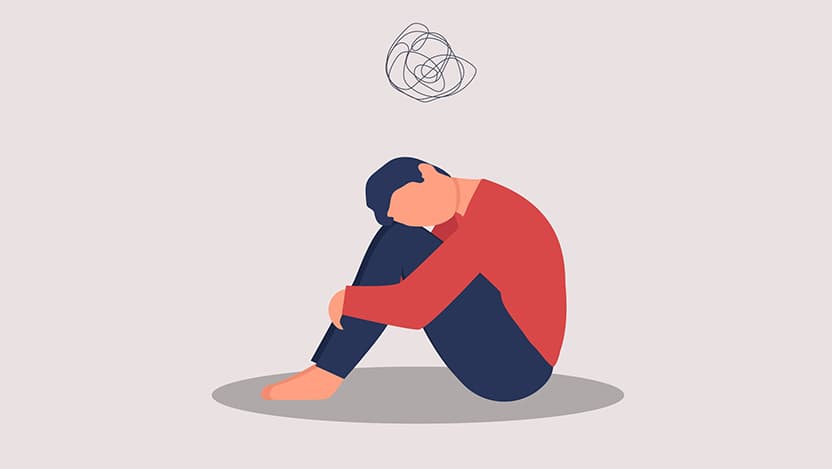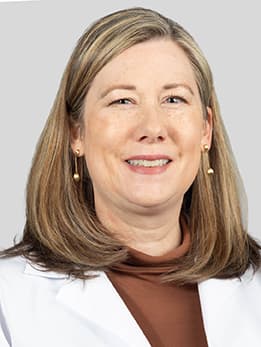Eating disorders in teens: Warning signs and treatment options for your child

If you suspect your child or teenager is struggling with an eating disorder, or if they’ve just been diagnosed, it’s essential for the entire family to have support — and to take action as soon as possible.
“The key to treatment is early intervention,” said Seeba Anam, MD, a psychiatrist and medical director of the Eating Disorders Program at the University of Chicago Medicine. “There’s often a period of time where eating disorders occur and go undetected. If parents have suspicions, it makes sense to call us.”
The Eating Disorders Program is one of the few academic-based programs in Chicago also offering family-focused treatment for adolescents.
Located on UChicago Medicine’s Hyde Park campus, the outpatient clinic treats a range of eating disorders — including anorexia nervosa, binge eating disorder, bulimia nervosa and avoidant restrictive food intake disorder (ARFID).
Treatment focuses on patients’ physical and mental health, and it includes family and caregivers in the process.
Anam is a member of an interdisciplinary eating disorders treatment team led by Jennifer Wildes, PhD, a clinical psychologist and Director of the Eating Disorders Program, that works closely with Karen Bernstein, MD, a UChicago Medicine adolescent medicine physician who specializes in eating disorders.
Anam and Bernstein explained signs and symptoms to look for, and how treatment can work for children and teens.
Warning signs a teen may have an eating disorder
- Skipping meals, snacks or cutting out food groups they used to enjoy
- Making strict rules around eating
- Significant or rapid weight loss (typically, children and teens should be growing)
- Not socializing with friends or family in order to avoid eating with them
- Spending lots of time counting calories or planning out meals
- Excessive exercise
- Cutting out calorie-dense foods
- Taking medications to suppress appetite
- Buying or using laxatives that haven’t been prescribed
- Weighing themselves multiple times a day
- Secretive eating
Physical symptoms that could indicate an eating disorder
- Lethargy or tiredness
- Decreased ability to concentrate
- Disruption in menstrual cycles
- Frequently feeling cold, even in warm surroundings
- Dizziness or fainting
- Becoming sick after eating
What are the most common eating disorders in teens?
The most common conditions treated at UChicago Medicine’s Eating Disorders Program are anorexia nervosa, bulimia nervosa, and avoidant restrictive food intake disorder (ARFID).
- Anorexia nervosa is a condition where people avoid food, severely restrict food or eat very small quantities of only certain foods. They also may weigh themselves repeatedly, have an intense fear of weight gain or engage in persistent behavior to prevent weight gain. Even when dangerously underweight, a person may see themselves as overweight.
- Bulimia nervosa involves regular episodes of consuming unusually large amounts of food and feeling a lack of control. This binge-eating is followed by forced vomiting, excessive use of laxatives or diuretics, fasting, excessive exercise or a combination of these behaviors. People with bulimia nervosa may be slightly underweight, normal weight, or overweight.
- ARFID is most common in middle childhood. A child with this condition does not eat enough calories to grow and develop properly — but not due to a fear of weight gain. One example is someone who experienced a choking or vomiting episode and may become fearful of eating and develop ARFID.
Who gets eating disorders — and why?
Experts aren’t sure who gets eating disorders and why, Bernstein said. The causes could be a combination of genetics, personality and emotional well-being.
Eating disorders do not occur because a caregiver is too controlling with food, and they aren’t caused by something they did or said.
“Parents can feel such shame and guilt, and some people theorize that it’s the fault of the family, and there’s really no evidence for that,” Bernstein said, noting that it’s also important for patients to know the disorder isn’t their fault either.
“Our approach to diagnosing and treating eating disorders has shifted to ‘This is an illness you have, not something you did or chose.’”
What can I expect from my child’s appointment?
The first visit is a thorough medical assessment to figure out the possible causes of disordered eating — or to determine if something else is wrong.
“My job is to rule out other medical causes of weight loss,” Bernstein said. “I have diagnosed patients with hyperthyroidism, and people who are depressed often have changes in appetite.”
Bernstein also looks for any medical issues caused by disordered eating, such as abnormal electrolyte levels or cardiac irregularities. Once a patient is medically stable, they’re referred to the outpatient program.
What does treatment for an eating disorder look like?
Young people enrolled in the Eating Disorders Program are commonly treated using family-based treatment, or FBT.
“It’s one of the best evidence-based models,” Anam said. “No one is blamed for the eating disorder, or interrogated about what caused it.”
A three-step program focuses on nutritional rehabilitation — getting the child to eat normally again and to return to a normal, healthy weight — and it can involve the support of parents, caregivers and siblings.
FBT typically lasts 12 to 20 sessions over the course of four to 12 months. As treatment progresses, the goal is for the young person to return to normal eating patterns, including making decisions over their own nutrition.
Mental health treatment for eating disorders
Once the patient is physically and emotionally recovered from their eating disorder, the focus transitions to other mental health concerns.
“It’s not uncommon for patients to also be experiencing anxiety or depressive disorders, obsessive-compulsive disorders, trauma- or stressor-related disorders, or substance use disorders while navigating eating disorders,” Anam said.
The Eating Disorders Program can provide referrals for treatment focusing on those other conditions.

Eating Disorders Program
Our state-of-the-art Eating Disorders Program provides assessment and treatment services to children, adolescents and adults with a broad range of eating- and weight-related problems.
Learn more about our eating disorders program
Jennifer Wildes, PhD
Jennifer Wildes, PhD, is a clinical psychologist and Director of the Eating Disorders Program.
Learn more about Dr. Wildes.Seeba Anam, MD
Seeba Anam, MD, is a child and adolescent psychiatrist and the medical director of the University of Chicago Medicine Eating Disorders Program.
Learn more about Dr. AnamKaren Bernstein, MD, MPH
Karen Bernstein, MD, MPH is a University of Chicago Medicine adolescent medicine physician who specializes in treating eating disorders.
Learn more about Dr. Bernstein